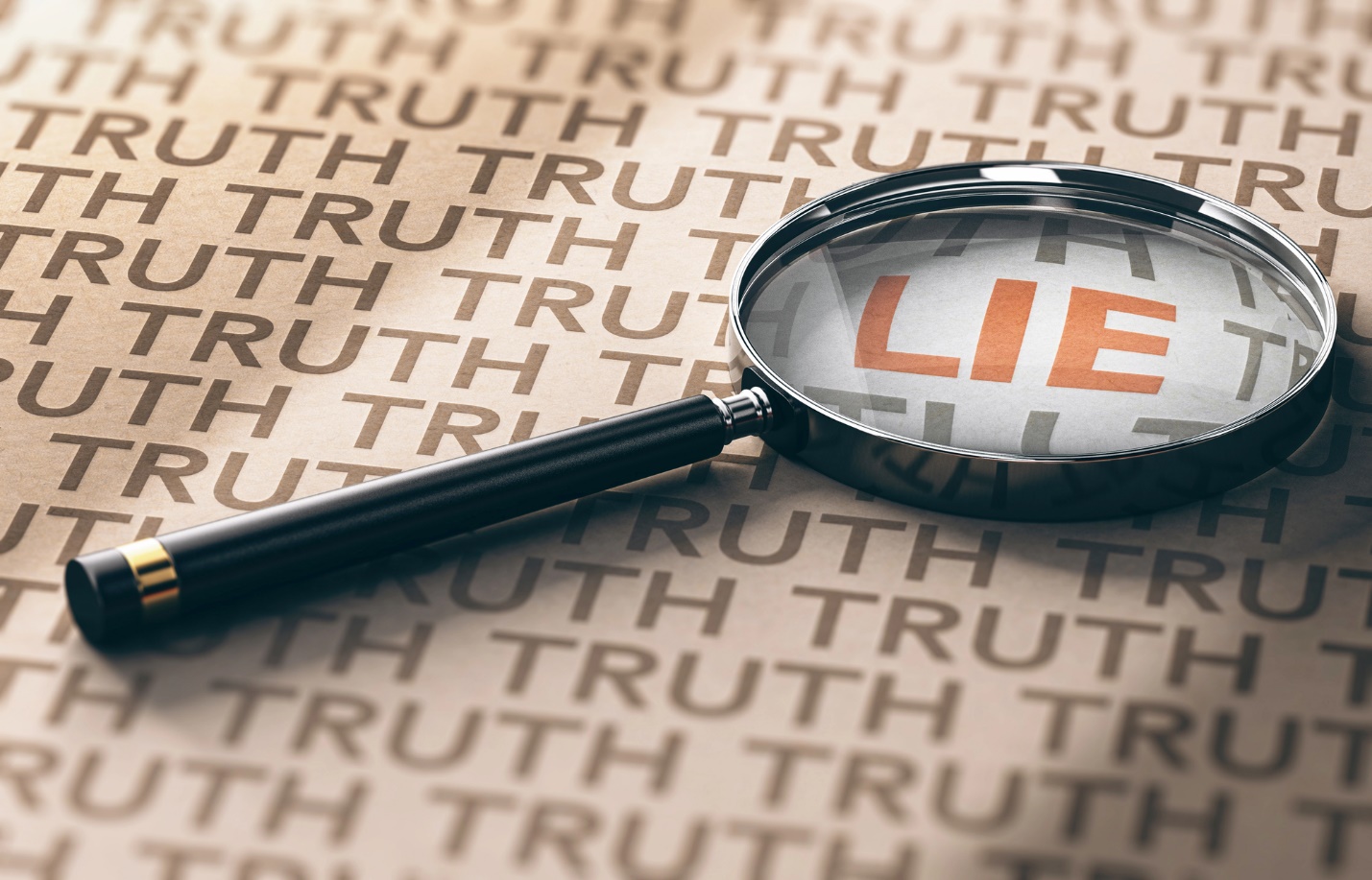BP 237
“If we say we have no sin, we deceive ourselves, and the truth is not in us. If we confess our sins, he is faithful and just to forgive us our sins and to cleanse us from all unrighteousness. If we say we have not sinned, we make him a liar, and his word is not in us” ~ 1 John 1:8ff
“It does not spoil your happiness to confess your sin. The unhappiness is in not making the confession.” ~ Charles Spurgeon
“In failing to confess, Lord, I would only hide You from myself, not myself from You” ~ Saint Augustine

M. Scott Peck in his book, People of the Lie, writes about people who cannot see their own sin—or better said, will not see their sin. When he refers to these individuals as “people of the lie,” he means that they ultimately are lying to themselves, not merely to God and others. They are unable to admit to themselves that they are unrighteous, that they are wrongdoers, that they are guilty of sin and evil.
You might know someone who fits this description because one way you can identify them is that they are incapable of apologizing. They don’t apologize because they can never be wrong.
These people can be dangerous, and not just to themselves.
In describing one of his clients, Peck says that George was “blessed by guilt.” Why does he refer to guilt as a blessed experience when so many psychologists see guilt as the scourge of mankind? Peck sees guilt as so important because George’s ability to experience his guilt led him to an awareness of his own sinfulness which, in turn, led him to turn away from evil which then prevented him from “becoming evil.”
Yes, here is where orthodox Christians will part ways with some of Peck’s language or concepts. One point of clarification is required here, namely, while Peck argues that everyone is a sinner, he would say that some people acquire the label of being evil when they are “characterized by their absolute refusal to tolerate the sense of their own sinfulness” (p. 71).
Peck accurately claims that Christian doctrine has two things to say about sin. First, we are all sinners. Second, “we are forgiven our sins—at least as long as we experience contrition for them.” He goes on to say that if we have an awareness of our sin but not an awareness of God’s merciful and forgiving nature, we would be “overwhelmed by hopelessness.”
What must we do with our sin if there is no merciful God?
Peck doesn’t come out and fully say it, but he might be suggesting that if we don’t have an awareness of the Christian God who forgives sin, we are then left alone with a sense of our sinfulness and must find self-generated ways of dealing with our sin, with our deep state of badness. One human maneuver is to deny our sinfulness and to dismiss our guilt as terrible and crushing burdens hoisted onto the human mind by religious extremists and a parochial Bible.
To clarify further, Peck’s definition of an evil person is someone who is righteous in his own eyes. He writes that “evil is not committed by people who feel uncertain about their [self-] righteousness.” He goes on to announce the theme of his whole book: “The evil in this world is committed by . . . the Pharisees of our day, the self-righteous who think they are without sin because they are unwilling to suffer the discomfort of significant self-examination” (p. 72).

Peck quotes in his book a comment by Saint Therese of Lisieux who said, “If you are willing to serenely bear the trial of being displeasing to yourself [acknowledging your sinfulness], then you will be for Jesus a pleasant place of shelter.” To displease yourself is to embrace an awareness of your sin whereas to become a person of the lie (an evil person in Peck’s definition) is to deny to yourself that you are a sinner–guilty and unrighteous.
What then does Peck’s evil person do with their sin besides denying it to themselves? Some of these individuals might occasionally admit they make mistakes but only when they are the one who volunteers it. Never are they able to admit it when someone else confronts them about their sin like the prophet Nathan confronted David. Some of these “evil” individuals seem to be able to acknowledge mistakes on their own terms but are completely unable to receive correction from someone outside of themselves. They must be in control of, as it were, the guilt or the conviction of sin.
Let’s look a bit closer at the “evil” person according to Peck, at the people of the lie.
Peck writes, “A predominant characteristic . . . of the behavior of those I call evil is scapegoating. Because in their hearts they consider themselves above reproach, they must lash out at anyone who does reproach them. They sacrifice others to preserve their self-image of perfection” (p. 73).
When they experience conflicts with the world such as someone pointing out their sin, they will (they must) view the conflict as the world’s fault. “Since they must deny their own badness, they must perceive others as bad. They project their own evil onto the world. They never think of themselves as evil; on the other hand, they consequently see much evil in others” (p. 74).
Here we see that one of the great evils of not being able to own one’s sin is that one must find a way to then deal with them without apart from self-awareness, contrition, and confession. A common means to eradicate sin (or at least to deny it) is to Pharisaically see it in other people instead of in one’s own self. Do you remember the story Jesus told?
“He also told this parable to some who trusted in themselves that they were righteous, and treated others with contempt: ‘Two men went up into the temple to pray, one a Pharisee and the other a tax collector. The Pharisee, standing by himself, prayed thus: “God, I thank you that I am not like other men, extortioners, unjust, adulterers, or even like this tax collector. I fast twice a week; I give tithes of all that I get.” But the tax collector, standing far off, would not even lift up his eyes to heaven, but beat his breast, saying, ‘God, be merciful to me, a sinner!’ I tell you, this man went down to his house justified, rather than the other. For everyone who exalts himself will be humbled, but the one who humbles himself will be exalted” Luke 18:9ff.

Could it be that one of the most evil people in the world, one of the worst people of the lie is the religious person who hides behind a righteousness that actually does not come from God but from a self-constructed righteousness that requires a denial of his or her own unrighteousness as the Pharisees did? To deny our sin is in itself a sin—a great sin. How can someone even approach Christ for salvation if he or she does not embrace an awareness of his or her own sinfulness and subsequent separation from God?
“There is no one righteous, not even one; there is no one who understands; there is no one who seeks God. All have turned away; they have together become worthless; there is no one who does good, not even one” ~ Romans 3:10ff
As alluded to earlier, I believe that one of Peck’s primary points in his book is that when evil people deny their sin, they must see badness in someone else, sometimes even in their own children. The people of the lie, then, are willing to let their own vulnerable offspring bear the badness and the guilt and the sin so that they do not have to see it in themselves. Here is where we encounter the great evil of scapegoating. Here we see the evil that some parents commit by sacrificing their own son or daughter so that they can preserve their own sense of being good, righteous, without fault.
An example of this evil is when a father shames his six-year-old daughter for being bad and misconstruing reality when she asks him why he criticizes the pastor and other church people behind their backs or why he complains about her mommy spending too much money but never admits that he has an addiction to weed.
Taking a brief psychological detour, people of the lie appear to be afflicted by what psychologists would call a personality disorder. Peck himself makes the comment that evil people “do not fall clearly into our routine psychiatric pigeonholes. This is not because the evil are healthy. It is simply because we have not yet developed a definition for their disease” (p. 70).
I would agree with Peck and then go on to say that humans’ core problem is not psychological illness but by the illness caused by sin and separation from God. My point is that when we consider people’s psychological diagnosis, we place them in the category of being neurotic or personality disordered. Those who are neurotic tend to look inside and blame themselves while those who are diagnosed with a personality disorder tend to look outside and blame the world as the problem instead of seeing the problem in themselves.
It appears that the neurotic individual will have an easier time admitting her sin than the personality disordered person since the latter individual has learned to see the bad in others and deny it in herself. I suppose above all it is important for us to know that we are all mentally ill. All of us have features of neurosis and disordered personality. We have all been impacted by the fall in the Garden not just spiritually but relationally, physically, and psychologically. Therefore, we must all look inside first (instead of blaming others) and examine ourselves for our psychological and spiritual unhealth, not in an overscrupulous manner, but in a way that leads to healthy conviction and sorrow and confession.

I will make one last point from Peck about people of the lie that often seems to be true. These individuals want to look good on the outside (like the Pharisees). How they appear outwardly to others is very important to them, maybe partly because if they gain positive affirmation from others then they can more easily deceive themselves into thinking that they are righteous and not sinful.
Peck writes something that often is true of people of the lie: “While they seem to lack any motivation to be good, they intensely desire to appear good. Their ‘goodness’ is all on a level of pretense. It is, in effect, a lie. This is why they are the ‘people of the lie’ . . . Actually, the lie is designed not so much to deceive others as to deceive themselves. They cannot or will not tolerate the pain of self-reproach” (p. 75).
“Woe to you, scribes and Pharisees, hypocrites!” Jesus said. “For you clean the outside of the cup and the plate, but inside they are full of greed and self-indulgence. You blind Pharisee! First clean the inside of the cup and the plate, that the outside also may be clean. Woe to you, scribes and Pharisees, hypocrites! For you are like whitewashed tombs, which outwardly appear beautiful, but within are full of dead people’s bones and all uncleanness. So, you also outwardly appear righteous to others, but within you are full of hypocrisy and lawlessness” (Matthew 23:25ff).
How essential to life and honesty it is to be able to look inside and acknowledge sin and confess it! In this practice, there is salvation. It is supernaturally healthy to be aware of your sin, to feel guilty about it, and to seek to have it forgiven and washed away.
To be evil is to feel offended by others and blame them and demand that they clean their cups while yours remains untouched. To come to Jesus with a repentant heart is to acknowledge that He took the burden of your sin when He died on the cross.
To deny your sin is to harden your heart and place the burden of your sin onto others. To be a child of God is to see the log that is in your eye instead of always trying to remove the speck from someone else’s eye.
To be a person of the lie is to sacrifice others to maintain your sense of righteousness. To be a child of God is to run to the throne of Him who invites you to approach Him to receive grace and mercy.
So, why are there people of the lie? Why are people evil in the sense that they must blame others (or even God—see Micah 6) instead of seeing and confessing their sin?
I don’t have space to dig too deep into that spiritual and psychological question today. What I will say is that if you have an acute awareness that there is a righteous and holy God who created you and who upholds the universe by the word of His power, you will be conscious of two things (somewhat similar to what Peck said). First, you will be aware of your sin in the presence of a holy God. Second, you will be aware that He is a merciful and forgiving God who is quick to wash away sin and embrace even the lost son (Luke 15) who had sullied himself so badly with sin that only a loving Father would receive him back.

If you know both truths, your response will be to run toward the merciful Father instead of hiding your sin and attempting to appear (self) righteous. If you are willing to need and bow down to the God of the universe, you will know forgiveness and salvation. But if for some reason you reject God’s sacrifice for your sin and rely on yourself to make yourself good (look good on the outside) at the expense of denying your sin, you will become a person of the lie.
It is a dangerous thing to defend against an awareness of your sin—dangerous to you and to those you must sacrifice as your scapegoats when they touch your shame. So, don’t shoot the messenger to deny your sin. Don’t lie to yourself. Instead, approach the Father who will run to you with compassion and forgiveness!
To move toward Jesus in confession so that He can remove your unrighteousness and give you His righteousness instead is a very psychologically healthy action to take. Here is another reason why the Christian faith makes so much sense even in the world of psychology. Guilt will not crush us if it leads us to run toward Him who will forgive, forget, and make us eternally clean and perfect.
“And he arose and came to his father. But while he was still a long way off, his father saw him and felt compassion, and ran and embraced him and kissed him. And the son said to him, ‘Father, I have sinned against heaven and before you. I am no longer worthy to be called your son.’ But the father said to his servants, ‘Bring quickly the best robe, and put it on him, and put a ring on his hand, and shoes on his feet. And bring the fattened calf and kill it, and let us eat and celebrate. For this my son was dead, and is alive again; he was lost, and is found.’ And they began to celebrate” ~ Luke 15
“Whoever conceals his transgressions will not prosper,
but he who confesses and forsakes them will obtain mercy” ~ Proverbs 28:13
“I acknowledged my sin to you,
and I did not cover my iniquity;
I said, ‘I will confess my transgressions to the Lord,’
and you forgave the iniquity of my sin” ~ Psalm 32:5
“For our sake he made him to be sin who knew no sin, so that in him we might become the righteousness of God” ~ 2 Corinthians 5:21

